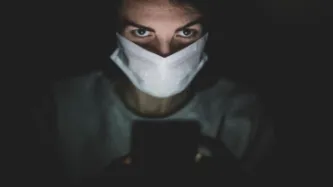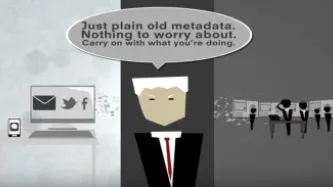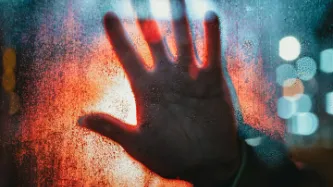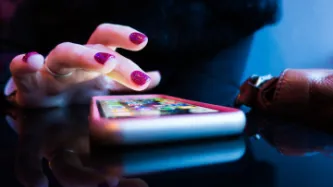Advanced Search
Content Type: Examples
The Ministry of Administration and Local Self-Government of the Republic of Srpska, an entity within Bosnia and Herzegovina, published the full and hometowns of the first 30 people who broke quarantine on March 23. The move was condemned by the Initiative for Monitoring the European Integration of Bosnia and Herzegovina, arguing that the move could lead to discrimination, stigmatisation, and even lynching, that there was no legal basis for removing protection from personal data, and…
Content Type: Examples
The European Commission urged Europe's telecoms giants, including Deutsche Telekom and Orange, to share their users' mobile data streams from across the region to help predict the spread of the coronavirus "for the common good". In a letter in response, Dutch Renew MEP Sophie In't Veld stressed that that data must remain anonymised, and questioned the usefulness of aggregating very large quantities of location data from millions of Europeans who are locked down. Meanwhile, questions are being…
Content Type: Examples
Argentina's Public Prosecutor's Office will start installing an app on the smartphones of those who violate government-ordered quarantine in the cities of Santa Fé and Rosario. The app will be installed by the province's Criminal Investigation Agency to track those who are under criminal investigation for violating quarantine. The app will send reports to the the MPA investigation office and coordinated by the Attorney General's Office. Individuals will be required to sign a document…
Content Type: Examples
On March 23, Argentina's immigration agency, Dirección Nacional de Migraciones (DNM), announced that anyone arriving in the country would be required to install the free COVID-19 Ministry of Health app on their phone for 14 days to ensure they comply with quarantine rules in order to protect the population. The Office of the Chief of Staff had instructed the DNM to adopt this policy when it launched the app, also on March 23. Since launch, the number of unnecessary permissions the app requests…
Content Type: Examples
Researchers at Germany's Robert Koch Institute and Fraunhofer Heinrich Hertz Institute are working on an app that uses Bluetooth connections between smartphones and is compliant with GDPR to anonymously save the distance and duration of contact between people on the smartphone to make it possible to digitally reconstruct infection chains. The idea is being copied from Singapore's TraceTogether app, which detects other users who have also installed the app. If someone tests positive, they can…
Content Type: Examples
Indonesian Ministry of Communication and Informatics/KOMINFO official website)
On Thursday, 26 March 2020, the Indonesian Minister of Communication and Informatics, Johnny G. Plate, issued the Ministerial Decree No. 159/2000 to facilitate the cooperation between the Government and telecommunication companies in developing a tracking app called TraceTogether. The app collects 14 days of mobile phone location data from the infected person, and then matches it to location data collected by…
Content Type: Examples
The Israeli Ministry of Health's mobile app, "The Shield", is intended to alert users if they have been at a location in Israel at the same time as a known COVID-19 patient.
The app, which is available for both Android and iOS, works by collecting the GPS and WiFi network (SSID) information of a user's mobile device throughout the day. This data is saved only on the mobile device and is not transmitted to the Ministry of Health, other government agencies, or any organisation. The locations…
Content Type: Examples
A web form to screen COVID-19 cases developed by the Mexico City government collects a wide range of personal information such as name, age, telephone number, home address, social network username, and cellphone number. The privacy notice establishes that such data may be transferred to a vast array of judicial and administrative federal and local authorities.
Source: https://test.covid19.cdmx.gob.mx/
Writer: Mexico City government
Publication: Mexico City government
Content Type: Examples
Owing to concerns about the possibility of spreading the coronavirus via banknotes and payment cards, Russia has begun testing its Unified Biometric System (EBS) for payments at a selection of grocery stores including Lenta supermarkets. The Russian bank VTB plans a mass roll-out for mid-2020. For the beginning of 2021, Promsvyazbank is planning trials of facial biometric payments, a system the bank is negotiating to introduce with several retail chains. Facial biometric payments are made…
Content Type: Examples
Managed from a purpose-built coronavirus control centre, Moscow's network of 100,000 cameras equipped with facial recognition technology is being used to ensure that anyone placed under quarantine stays off the streets. Officials claim the centre can also be used to track international arrivals and monitor social media for misinformation.
Source: https://www.france24.com/en/20200324-100-000-cameras-moscow-uses-facial-recognition-to-enforce-quarantine
Writer: Sam Ball
Publication: France 24
Content Type: Examples
The success of South Korea's efforts to combat the coronavirus without a national lockdown and without suspending civil rights depended in part on preparation put in place after the 2015 MERS epidemic and in part on the country's network of private testing labs, which enabled the country to quickly set up drive-in testing, with the results rapidly texted back to mobile phones. Positive results set in motion aggressive contact-tracing incorporating CCTV footage, mobile phone tracking data, and…
Content Type: Examples
A newly-enacted Slovakian law, inspired by similar laws in Singapore, South Korea, and Taiwan, allows the country's Public Health Office to use location data from mobile phones to track people ordered to quarantine to ensure they are not breaking the rules. The angry public response on privacy grounds forced the government to clarify: it will only collect limited data and use it only in connection with the coronavirus outbreak, the data will only be accessible by the Public Health Office; and…
Content Type: Examples
A day after John Tory, the mayor of the City of Toronto, told thousands of attendees at an online event hosted by TechTO that the city was gathering cellphone location data from telecoms in order to identify areas where residents were still congregating despite the city's social distancing rules, he withdrew the claim. City staff explained that an offer had been made to share anonymous cellphone location data with the City and it had been passed along to Toronto Public Health and the Emergency…
Content Type: Examples
The Rio de Janeiro City Hall has signed an agreement with telecomunications company TIM to use geolocation data to develop "heat maps" by cross-referencing epidemological hubs with high population density locations. Under the agreement, TIM will pinpoint the movement of its users across Rio de Janeiro through antennae-facilitated geolocation triangulation and send it online to the local government to enable it to monitor whether individuals are complying with isolation measures and assess…
Content Type: Explainer
In a scramble to track, and thereby stem the flow of, new cases of Covid-19, Governments around the world are rushing to track the locations of their populace. One way to do this is to write a smartphone app which uses Bluetooth technology, and encourage (or mandate) that individuals download and use the app. We have seen such examples in Singapore and emerging plans in the UK.
Apps that use Bluetooth are just one way to track location. There are several different technologies in a smartphone…
Content Type: Examples
Together with Norwegian company Simula the Norwegian Institute of Public Health is developping a voluntary app to track users geolocation and slow the spread of Covid-19. Running in the background, the app will collect GPS and Bluetooth location data and store them on a server for 30 days. If a user is diagnosed with the virus, its location data can be user to trace all the phones that have been in close contact with the person. Authorities will use this data to send an SMS only to those phones…
Content Type: Examples
In response to a case brought by the Legal Center for Arab Minority Rights in Israel (Adalah), the Arab Joint List, and the Association for Civil Rights in Israel, the Israeli Supreme Court issued a temporary injunction on March 19 limiting the the state's and the Shin Bet security service's use of cellphone surveillance, among others, to track and monitor COVID-19 patients and trace their contacts. The court indicated it will ban the programme unless a parliament oversight committee is…
Content Type: Examples
On March 20, the Peruvian government introduced a website where citizens can retrieve the results of tests for COVID-19. The site asks only for the patient to fill in their National ID number and a simple captcha, making it easy for unauthorised parties to access others' results and put people at risk of exploitation and discrimination.
Source: https://saludconlupa.com/noticias/peru-debilidades-de-plataforma-del-ministerio-de-salud-pueden-exponer-informacion-clinica-de-pacientes-covid-19…
Content Type: Examples
The Romanian government has formally notified the Council of Europe under Article 15, paragraph 3 of the ECHR of the country's state of emergency decree, noting that some of the measures being taken involve derogations from the obligations under the Convention.
Source: https://rm.coe.int/09000016809cee30
Writer: Permanent Representation of Romania
Publication: Official letter
Content Type: Examples
The Local Government Association has argued that councils should not have to comply with freedom of information requests during the coronavirus crisis. Greater Manchester police followed suit, saying that police in non-critical roles were being reallocated to operational policing and would not answer FOI requests "until further notice".
Source:
https://www.theguardian.com/politics/live/2020/mar/23/uk-coronavirus-live-news-latest-boris-johnson-minister-condemns-people-ignoring-two-metre-…
Content Type: Examples
On March 19, the Peruvian government instituted a daily curfew from 8pm to 5am, which applies to all but those working to provide essential services. Members of the print and broadcast press must carry their special permits, badges, and ID cards, and those requiring urgent medical care are allowed to travel. Private citizens are no longer allowed to drive their own cars at any time except where necessary for the above groups. The law is being enforced by the police and armed forces.
Sources:…
Content Type: Examples
On March 14, Romanian president Klaus Iohannis announced a state of emergency to make it possible to allocate new resources for crisis management, and urged the public to follow isolation guidelines and hygiene rules. The Parliament must approve within five days, and the state of emergency lasts 30 days. The decree allows the government to carry out checks on persons and places, order temporary closures of shops and other public places, halt the distribution of publications or broadcasts, and…
Content Type: Examples
Aided by its small size, Singapore's contact tracing efforts were a key element of controlling the virus's spread; detectives used CCTV footage to locate the contacts of more than 6,000 people. Singapore also contacts individuals required to self-isolate several times a day and requires them to send photographic proof of their location. Breaking quarantine attracts substantial penalties, including jail terms, and in one case stripped an offender of his residency rights. Singapore also quickly…
Content Type: Examples
On March 14 a group of immigrant advocacy groups wrote to the government asking for the Home Office to release all 1,500 to 2,000 detainees in order to protect them from a coronavirus outbreak in the UK's seven removal centres and two short-term holding centres.. On March 21, the Home Office said it had released 300 of the detainees. The charity Detention Action launched a legal action to compel the Home Office to release the most vulnerable detainees and test all detainees. The Home Office…
Content Type: Examples
After 195 US citizens were repatriated from Wuhan, China in January they were placed in quarantine without warning in a cordoned-off section of the Air Force Research Base in California's Mojave Desert. The legal position of this and other similar quarantines is unclear, as the Centers for Disease Control and Prevention have tried avoid judicial review of their actions, which they claim fall under regulations issued in January 2017.
Source: https://papersplease.org/wp/2020/01/31/can-…




